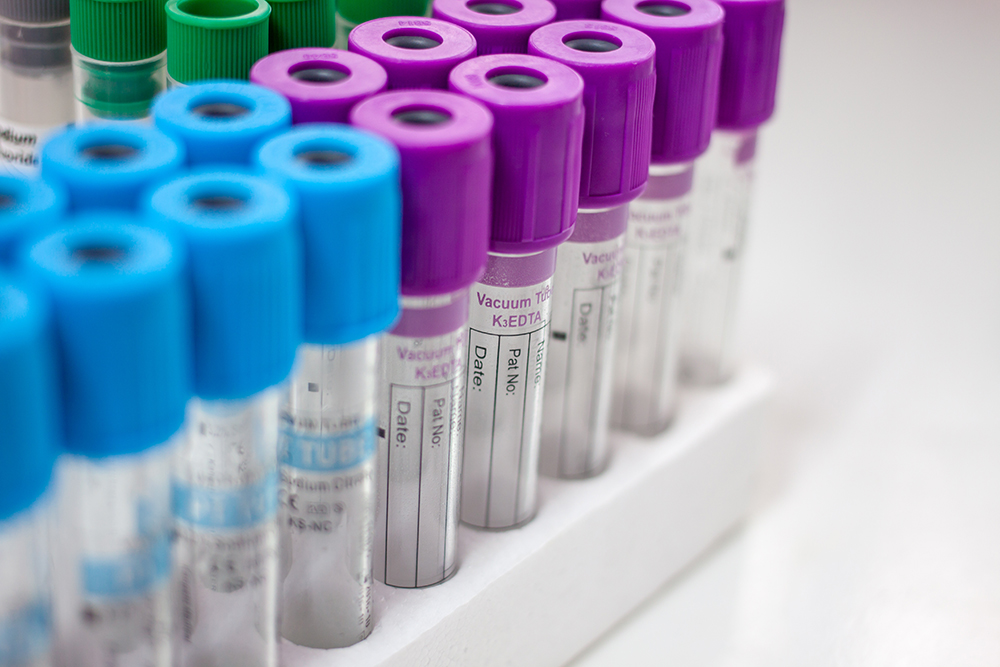


QUICK ENQUIRY
Lymphoma
Lymphoma is a cancer of the lymphatic system. There are two main types – Hodgkin lymphoma and non-Hodgkin lymphoma.
Hodgkin Lymphoma
Hodgkin lymphoma is a cancer of the lymphatic system – part of the body’s immune system. Only about 1 in 5 of all lymphomas diagnosed (20%) are Hodgkin lymphoma.
Around 1,700 people are diagnosed with Hodgkin lymphoma in the UK each year.
How does Hodgkin lymphoma develop?
Hodgkin lymphoma, like all cancers, is a disease of the body’s cells. Cells are tiny building blocks that make up the organs and tissues of our bodies. They divide to make new cells in a controlled way. This is how our bodies grow, heal and repair.
Cells receive signals from the body telling them when to divide and grow and when to stop growing. When a cell is no longer needed or can’t be repaired, it gets a signal to stop working and die. Cancer develops when the normal workings of a cell go wrong and the cell becomes abnormal. The abnormal cell keeps dividing making more and more abnormal cells.
In Hodgkin lymphoma, blood cells called lymphocytes become abnormal. These abnormal lymphocytes (lymphoma cells) keep dividing and grow out of the body’s control. Over time, the number of lymphoma cells increases and they form a lump called a tumour.
Lymphoma cells generally start to grow in lymph nodes. As there are lymph nodes and lymph vessels throughout the body, Hodgkin lymphoma can start in any part of the body. The most common place for it to start is in the lymph nodes in the neck. The next most common places are the lymph nodes:
under the arms (axilla)
in the chest
in the groin
Hodgkin lymphoma may affect a group of lymph nodes in just one area of the body. However, it’s common for lymphoma to be found in lymph nodes in more than one area of the body. This is because lymphoma cells can sometimes spread through the lymphatic system.
Lymphoma cells can also spread to other organs in the bloodstream. When the cells reach a new area, they may go on dividing and form a new tumour. Hodgkin lymphoma can also occur in body organs. In some people it can affect the spleen, liver, lungs or bone marrow.
The treatment of Hodgkin lymphoma is usually very successful, even when it is in several different areas of the body. Most people can now be cured or the lymphoma can be controlled for many years.
Non-Hodgkin Lymphoma
Non-Hodgkin lymphoma (NHL) is a cancer of the lymphatic system.
NHL is the fifth most common cancer in the UK. Around 11,500 people are diagnosed with it each year. There are many types of NHL. Some grow very slowly and may not need treatment for months or years. In some cases they may never need treatment. Other types grow quickly and need treatment soon after diagnosis.
How does non-Hodgkin lymphoma develop?
NHL, like other types of cancer, is a disease of the body’s cells.
The body is made up of cells that need to be replaced as they age or are damaged. This happens by cell division, which is when a cell divides and makes a new copy of itself.
Normally, cell division is carefully controlled so the right amount of cells is made to meet the needs of the body. However, if this process gets out of control for some reason, too many cells are made and a cancer can develop.
In NHL, blood cells called lymphocytes become abnormal. These abnormal lymphocytes (lymphoma cells) keep dividing and grow out of the body’s control. Over time, the number of lymphoma cells increases and they form a lump called a tumour.
The most common place for this to happen is in the lymph nodes. But, NHL can begin in almost any part of the body including; the stomach, small bowel, skin, tonsils, thyroid or testicles. Lymphoma that grows outside the lymph nodes is called extranodal lymphoma.
Because lymphocytes travel around the body, NHL can spread from where it first started. It can spread through the lymphatic system from lymph nodes in one part of the body to lymph nodes elsewhere. Lymphoma cells can also travel in the bloodstream to organs such as the bone marrow, liver or lungs. When the lymphoma cells reach a new area, they may carry on dividing and form a new tumour.
For more information on lymphoma please do not hesitate to get in touch with Dr Shafeek through our appointments page.

